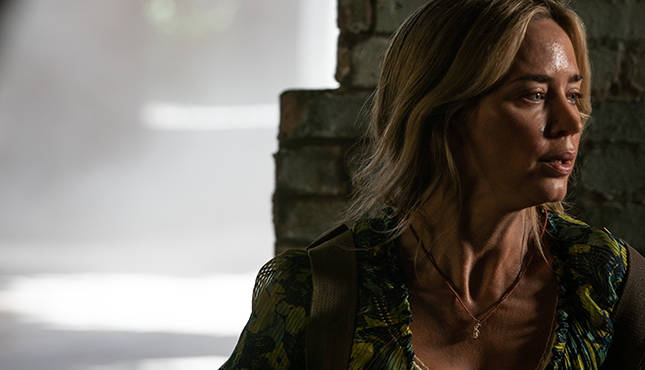Movies & TV / Columns
Are Movie Theaters in Trouble Due to the Coronavirus Outbreak?
 Image Credit: Paramount Pictures
Image Credit: Paramount Pictures
Before we jump into things I want to acknowledge that in light of everything going on, I know that this column’s topic, in the grand scheme of things, isn’t the end all, be all. For me, the movie theater has always been a place to get away from the troubles of the day and be entertained by the sounds and images on the big screen. Now a visit to the theater is out of the question and going forward this might further change how we get our entertainment.
Everyone one is feeling the impact on the coronavirus. Hollywood is no different. Last Thursday, John Krasinski, the writer/director/star of A Quiet Place Part II, announced that Paramount Pictures would be holding the release of their sequel due to the global pandemic.
The movie joins No Time To Die, F9, Mulan, New Mutants and the Peter Rabbit sequel as studios scramble to adjust schedules as some areas are banning public gatherings like movie theaters. In San Francisco, Alamo Drafthouse has begun staggering seating after California Gov. Gavin Newsom restricted gatherings of more than 250 people.
“I don’t think there will be a country-wide ban on theaters remaining open, but certain municipalities will be impacted,” says Wall Street analyst Eric Handler of MKM Partners. “Ultimately, the decision to close will be made for them if everyone cancels their new releases.”
Ticket sales in North America hit their lowest levels in more than two decades, generating roughly $55.3 million between Friday and Sunday. Box office numbers have not been this low since the Sept. 15 to 17 weekend in 2000, when movie theaters brought in $54.5 million.
Swinging back to the Alamo, they have made statements on how the coronavirus has impacted them and their employees. Currently they are limiting showings to smaller crowds and doing all they can to provide a safe and clean environment. In regards to employee pay, they’re ready. “Our employees’ safety and security are extremely important to us. Coronavirus tests are covered by our insurance. If an employee is not insured, we will cover the cost of the test. While waiting for test results, we will pay for time away from work. If an employee tests positive, we will pay for the 14 days of quarantine sick leave. After that time, employees may utilize any paid time off or sick leave they have accrued,” Tim League said in the advisory.
With movie theaters hitting a major hurdle, some are using this to push for studios to put more focus on the streaming side of things, bypassing theaters altogether.
With more and more streaming players entering the ranks, the rush to get new content has never been tighter. Comcast-NBCUniversal announced that its service, Peacock, would debut in April for Comcast Xfinity customers and July for everyone else. AT&T-Warnermedia has set its HBO Max service for May. Quibi, which is not directly connected to a studio but is backed by all of Hollywood in some form, is launching on April 6th. They join a packed filed with Disney Plus, Hulu, Netflix, and others.
With everything going on, studios are left wondering if they should move these mega projects over to a streaming service to get a bigger viewing audience. If you were a new streaming service, what better way to draw subscribers than being able to debut a new James Bond or Fast and Furious movie?
While the movie theater experience has tried to change to cater to a new time, we can’t avoid the fact that people are getting their entertainment elsewhere and in different ways. With the coronavirus putting a halt to our sports and entertainment, when this passes (and it will pass, hopefully sooner rather than later) what we left behind might not be the same when we come back to it.







